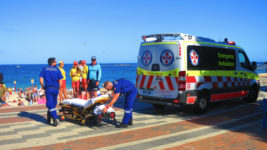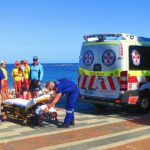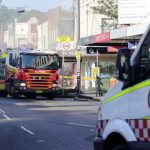Paramedics Don’t Call Police Over Illicit Drug-Related Ambulance Call-Outs

NSW deputy state coroner Harriet Grahame recently recommended that pill testing services be rolled out at festivals and the use of drug detection dogs be dropped. She came to these conclusions as a result of her investigation into drug-related deaths at NSW music festivals.
Five young people died at music events over the 2018-19 festival season. The first two overdose deaths occurred at September 2018’s Defqon.1 festival, which was an event where punters later complained of being too scared to seek medical assistance as police had surrounded the medic tent.
The fear of getting into trouble with the law is a major barrier to seeking medical help when illicit drug use is involved. That’s why it’s essential for people to know that when an ambulance is called to a drug incident in settings other than events paramedics don’t call the police.
So, if an individual appears to be in trouble after ingesting illicit substances at someone’s house, an ambulance can be called and the police won’t be involved. It’s also open to approach a hospital or a doctor directly for help related to illegal drug use and they won’t contact police either.
Safety, before punishment
“Remember, getting someone to hospital quickly could save their life. Call “000” immediately and ask for an ambulance,” outlines a NSW police brochure called Ecstasy and the Law. “Police are only called to an overdose if there is any danger to the ambulance officers or if the person dies.”
The brochure also sets out that if a person is unconscious they should be moved to a safe place if in danger, an ambulance should be called immediately, the person should be rolled onto their side, their breathing should be checked and if it’s problematic, “mouth to mouth” should be applied.
NSW Police Force drug overdose guidelines instruct officers that attend a nonfatal overdose situation to use their discretion and not take action for the self-administration of illegal drugs or the minor possession of illicit substances by the victim, as well as anyone else at the scene.
And in the case of a fatal overdose, it’s police protocol to treat the circumstances like any other death and investigate anything that seems suspicious. Although, it’s recommended that officers use the same discretion for minor drug offences as they do at the scene of nonfatal overdoses.
Advice on drug-related matters
There are also helplines available if there is a need to discuss any drug-related incidents, which don’t warrant the immediate calling of an ambulance. There’s the 24 hour Alcohol and Drug Information Service (ADIS), which can be contacted on 1800 250 015.
The ADIS is a free service that can be called in relation to any alcohol or other drug issues being experienced, or to consult someone about a general question related to such issues. The service can be called at any time “for support, information, counselling and referral to services in NSW”.
There’s also the 24/7 NSW Poisons Information Centre, which can be contacted on 131 126. It can provide the latest poison information, whether that be plant, animal or household chemical related. The service is available for the general public or for health professionals in need of assistance.







